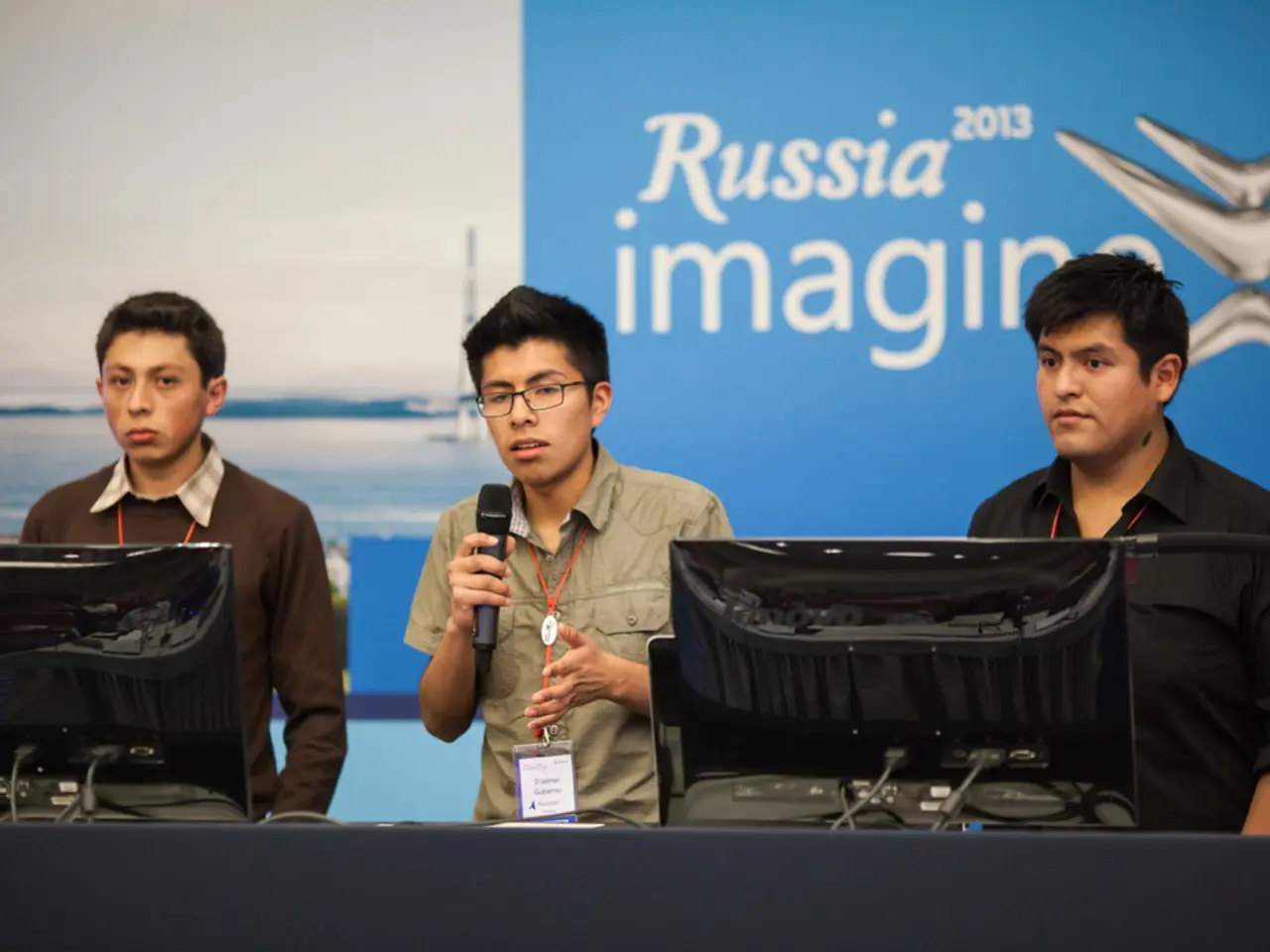Bridging Africa's Shortage of Tech Professionals through Artificial Intelligence Education
Africa is currently grappling with a severe shortage of AI talent, contributing only 3% to the global AI talent pool. Despite a rapidly growing tech ecosystem and a digital economy projected to add $180 billion to GDP by 2025, the continent faces a lack of skilled professionals, limited high-skill job availability, outdated curricula, insufficient training infrastructure, and limited internet access.
However, several initiatives are being undertaken to address this gap. AI and data science training programs like ALX, Zindi, and Data Science Nigeria focus on practical, locally relevant skills, boasting around 85% employment rates for graduates. These programs are proving to be a game-changer in addressing Africa's tech talent shortage, equipping workers with the practical, job-ready skills needed for today's rapidly evolving industries.
Corporate investments by major companies like Microsoft and Intel aim to build AI talent through large-scale training efforts and infrastructure enhancement. For instance, Microsoft plans to invest ZAR 5.4 billion in South Africa by 2027 to expand cloud and AI infrastructure, building on prior investments.
Building digital infrastructure and data centres is crucial, as only 1% of global computing and data storage capacity is located in Africa. Efforts include developing a scalable data centre workforce, addressing workforce training, certification, and placement needs to support a booming data centre industry hampered by talent shortages.
Public-private partnerships and mentorship models are rising, combining businesses and educational institutions to provide short-term training and hands-on experience tailored to Africa’s unique challenges. Governments are increasingly positioning themselves for a digital future by focusing on local AI initiatives and closing the AI equity gap to harness the continent’s innovation potential.
These programs are not just closing critical skills gaps but also nurturing a new generation of tech professionals ready to drive innovation, attract investment, and create solutions tailored to Africa’s unique needs. AI could generate over 3 million jobs across African economies by 2030, and the growing emphasis on micro-credentials and lifelong learning frameworks highlights the importance of continuous education in adapting to the evolving demands of the tech industry.
As the continent continues its digital transformation, these programs are paving the way for Africa to emerge as a global tech leader. Cassava Technologies partnered with Nvidia to launch Africa’s first AI factory in South Africa, with plans to expand advanced computing and AI capabilities to Egypt, Kenya, Morocco, and Nigeria. Aerobotics, a South African startup, estimates crop yields with 95% accuracy, while Ubenwa Health’s app uses AI to detect infant asphyxia with 88% accuracy.
Moreover, these programs address another pressing issue: youth unemployment. In South Africa, where youth unemployment has reached a staggering 62%, AI training initiatives offer a path to globally competitive careers. Rwanda's Zipline's AI-powered drones have cut blood delivery times by 61% and reduced blood unit expirations by 67%.
Collaboration is amplifying these efforts. Microsoft's initiative to train one million South Africans by 2026 and Nigeria's 3 Million Technical Talent program demonstrate the significant investments being made in AI education across Africa. Twiga Foods, in collaboration with IBM Research Africa, developed AI agents that use reinforcement learning to negotiate prices between farmers and retailers.
As Pipeloluwa Olayiwola, an Engineering Professor at Obafemi Awolowo University, stated, Africa is not prepared to reach its full AI potential because of a lack of talent. However, with the right initiatives, investments, and collaborative efforts, Africa can bridge its AI talent gap and emerge as a global leader in AI-driven innovation.
- Digital inclusion, education-and-self-development, and career-development are key focuses of AI and data science training programs like ALX, Zindi, and Data Science Nigeria, which strive to prepare African workforce with job-ready skills for the rapidly evolving tech industries.
- Technology companies such as Microsoft and Intel are investing heavily in Africa, providing large-scale training efforts and infrastructure enhancements to help build a strong AI talent base on the continent.
- Learning and skills-training are not one-time processes for Africa's technological growth; continuous education in the form of micro-credentials and lifelong learning frameworks will be essential for adapting to the ever-changing demands of the tech industry.
- By bridging the AI talent gap and promoting digital inclusion, Africa can capitalize on its innovation potential and become a global leader in AI-driven technologies, as demonstrated by initiatives such as Cassava Technologies' AI factory and Aerobotics' AI-powered crop estimation.




